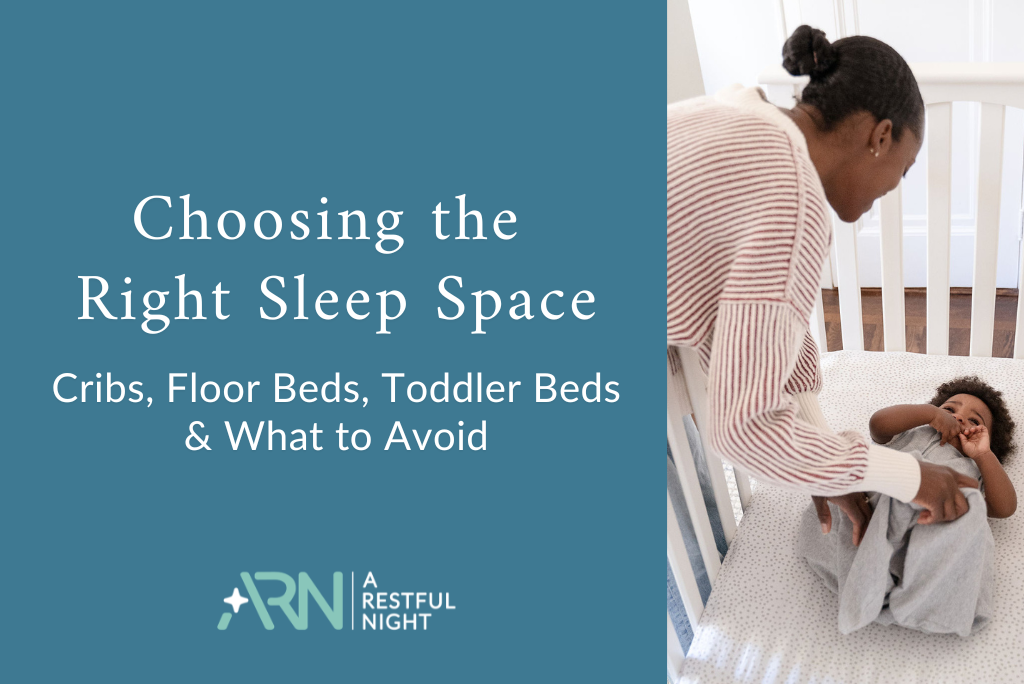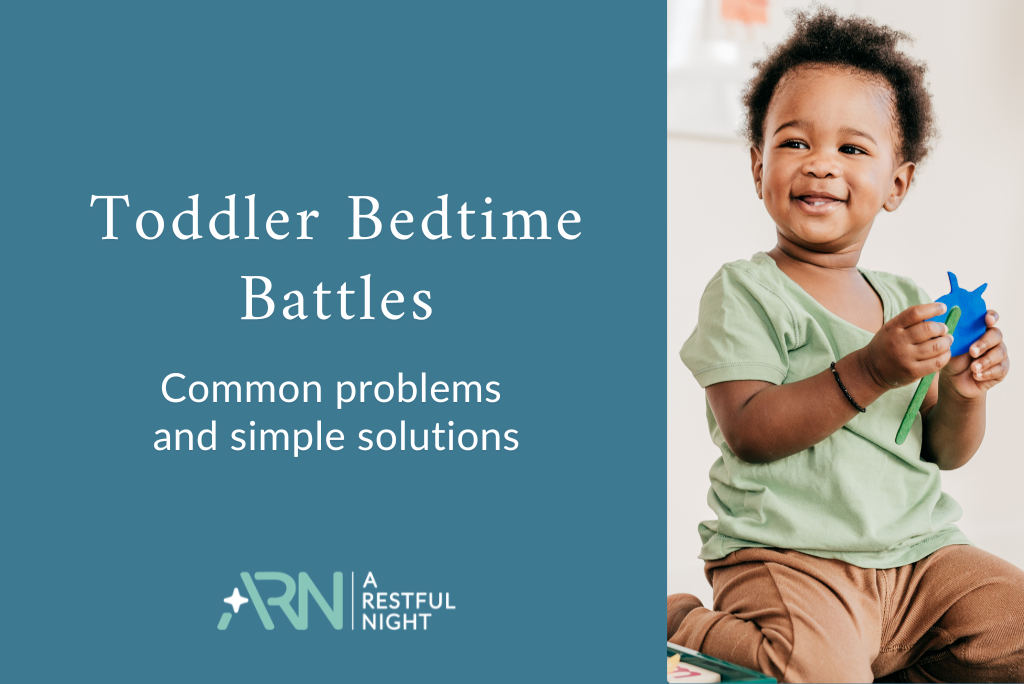Best Sleep Schedule for Toddlers: A Complete Guide to Mastering the 2-year-old Sleep Routine
If you're the parent of a toddler, you've probably noticed that sleep looks dramatically different from what it did during the baby years. Your two-year-old might be fighting bedtime, waking up overnight, or suddenly resisting naps, and you're left wondering if their sleep schedule needs an overhaul.
The truth is, your toddler's sleep needs are changing, and understanding these shifts is key to creating a schedule that works for your whole family. Let's break down everything you need to know about toddler sleep schedules, including when and how to adjust naps, what bedtime should look like, and how to avoid the most common scheduling pitfalls.
Your Toddler's Sleep Needs
Here's the most important thing to know about toddler sleep: by the time children reach 2 to 3 years old, they typically need around 12 hours of sleep in a 24-hour period. This is a significant shift from infancy, when babies could easily sleep 14-16 hours per day.
What does this mean for your family? It means that your toddler could (and should) get the vast majority of their sleep overnight. While naps are still important for many toddlers, the role of daytime sleep becomes less critical as children grow. The key is understanding how to balance daytime and nighttime sleep so naps don’t interfere with deeper, more restorative overnight night sleep.
Prioritizing Overnight Sleep: The Foundation of Healthy Rest
When working with toddler parents, one of the biggest mindset shifts my team encourages is this: overnight sleep should be your priority. This is when your child gets their most restorative, brain-building rest. While a good nap is valuable, it should never come at the expense of quality nighttime sleep.
Many parents unknowingly "over-nap" their toddlers, allowing long afternoon naps that feel convenient in the moment but lead to bedtime battles, overnight wake-ups, or 5:30 AM mornings. If your toddler is struggling at night, the first place to look is often the nap schedule.
The Two-Nap vs. One-Nap Question
Most toddlers transition from two naps to one nap sometime between 12-18 months, though every child is different. If you're still navigating this transition or wondering if your schedule is on track, check out our detailed guides:
2-Nap Schedule Guide – For younger toddlers or those still benefiting from morning and afternoon rest
1-Nap Schedule Guide – For toddlers who have consolidated to one midday nap
Once your child settles into a one-nap routine, you'll likely find that their schedule becomes much more predictable. Unlike infancy, when sleep schedules shift dramatically from month to month, the one-nap phase brings welcomed stability.
Creating the Ideal Toddler Sleep Schedule
Wake Time: Consistency Is Key
Your toddler should wake up around the same time each morning—ideally between 6:30-7:30 am. Consistent wake times help regulate their internal clock and make it easier to predict when they'll be ready for naps and bedtime. Plus, a grounded morning routine gives you some predictability, and the ability to schedule some me-time in the morning before your little one wakes.
TIP: If your toddler wakes earlier than you'd like, an OK-to-Wake Clock can be a game-changer for teaching them when it's appropriate to start the day.
Nap Time: Anchor It in the Middle of the Day
For toddlers on a one-nap schedule, the nap should be anchored in the middle of the day: typically starting between 12:00-1:00 pm. This timing allows enough wake time in the morning for your child to build sleep pressure, while still leaving sufficient awake time before bedtime.
How long should the nap be? This is where many parents struggle. Here's the honest answer: it depends on your child's total sleep needs and their overnight sleep.
If your toddler is sleeping 11-12 hours at night, they may only need a 1-1.5 hour nap. If they're getting closer to 10 hours overnight, a 2-hour nap might be more appropriate. The key is to watch how the nap affects nighttime sleep. If your toddler is:
Taking a long time to fall asleep at bedtime
Waking frequently overnight
Waking very early in the morning
...then their nap may be too long or happening too late in the day.
As a general rule, the nap should end by 3:00 to protect bedtime and overnight sleep.
Bedtime: Adjust Based on the Day
Unlike the rigid bedtime schedules of infancy, toddler bedtimes can be slightly more flexible. While consistency is still important, you may need to adjust bedtime based on:
Whether your child napped that day
How long the nap was
How active or stimulated they were during the day
Signs of overtiredness
A typical toddler bedtime falls between 7:00-8:00 pm, but if your child skipped a nap or had a shorter nap, you might move bedtime 30-60 minutes earlier to prevent overtiredness (and the crankiness that comes with it).
Common Toddler Sleep Schedule Mistakes
Mistake #1: Too Much Time in the Crib
Many parents with content, crib-loving toddlers make this mistake without realizing it. Your child goes into their crib at 7:30 pm but doesn't actually fall asleep until 8:15 pm. Or they wake at 6:30 am, but you don't get them until 7:00 am.
While it's wonderful that your toddler is confident and happy in their crib, spending too much awake time there can lead to problems. Over time, your child may start to feel resentful: they're awake and ready to be up, but they're stuck waiting. This can eventually lead to:
Bedtime protests and resistance
Sleep regressions
Crib climbing attempts (these are dangerous and should be addressed immediately)
The fix: Make sure your toddler's schedule aligns with when they're actually sleeping, not just when they're in their crib. If bedtime routines consistently end 30 minutes before your child falls asleep, push bedtime later. If your child is awake and playing in their crib for 30 minutes each morning, adjust wake time accordingly.
Mistake #2: Holding Onto the Nap Too Long
This is a tough one for parents. Nap time often feels like a sacred break in the day: time to catch up on work, household tasks, or simply breathe. But if your toddler's nap is interfering with nighttime sleep, it may be time to consider whether they're ready to drop it.
Most toddlers drop their nap sometime between 2.5-4 years old, though some children (especially those in daycare or preschool with mandatory quiet time) may continue napping well past age four. There's no universal "right" time to drop the nap, but watch for these signs:
Consistently taking 30+ minutes to fall asleep at nap time
Bedtime battles that didn't exist before
Napping well but then staying awake until 9:00-10:00 PM
Early morning wake-ups that coincide with days they napped
Mistake #3: Inconsistent Schedules on Weekends
Toddlers thrive on predictability. While it's tempting to let everyone sleep in on Saturday or skip the nap for a family outing, frequent schedule disruptions can lead to overtiredness and behavioral challenges. Aim for consistency at least 80% of the time.
When to Adjust Your Toddler's Schedule
Unlike the baby months when schedules shifted constantly, toddler schedules are refreshingly stable once you find the right rhythm. However, you may need to make adjustments when:
Transitioning from crib to bed: This major milestone often requires schedule tweaks and new boundaries. Our online Navigating the Crib to Bed Transition Course will walk you through how to make this change smoothly while maintaining healthy sleep habits.
Dropping the nap: You'll need to gradually shift bedtime earlier to compensate for lost daytime sleep.
Seasonal time changes: Daylight Saving Time can throw off your toddler's internal clock.
Developmental leaps: Growth spurts, language explosions, and increased physical activity can temporarily affect sleep needs.
Final Thoughts: Trust the Process
Getting your toddler's sleep schedule right doesn't happen overnight. It requires observation, patience, and a willingness to make adjustments as your child grows. Remember: the goal isn't perfection, it's consistency and prioritizing the overnight sleep that matters most for your child's development.
If you're struggling to find the right schedule for your toddler, or if sleep challenges persist despite following these guidelines, you're not alone. Sometimes, scheduling issues are just one piece of a larger sleep puzzle. We'd love to help you figure out what's really going on and create a customized plan for your family.
Schedule a complimentary consultation calland let's get your toddler's sleep back on track, so everyone in your household can rest easy.
Meg O'Leary is an Infant and Child Sleep Expert and the founder of A Restful Night. Based in Westchester County, NY, she leads a team of certified sleep coaches to provide virtual support to families across the US and around the world.





